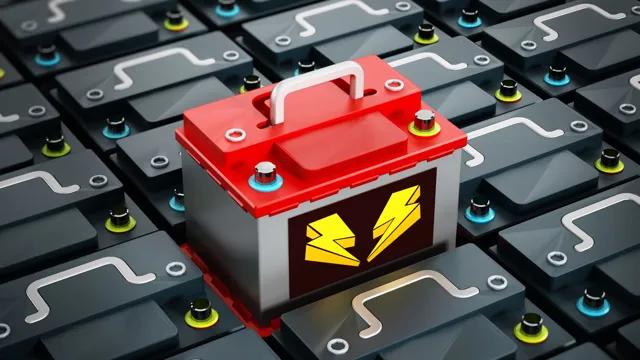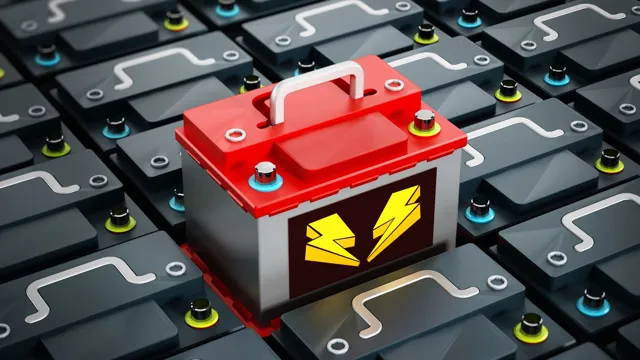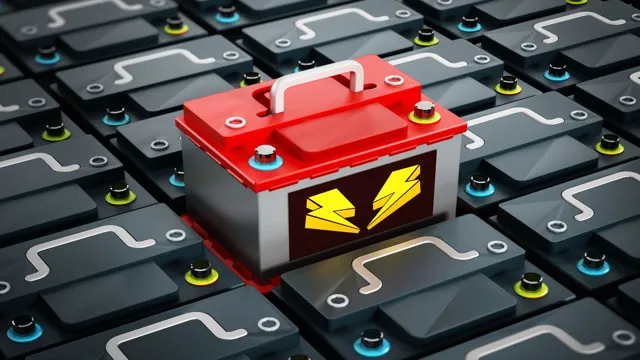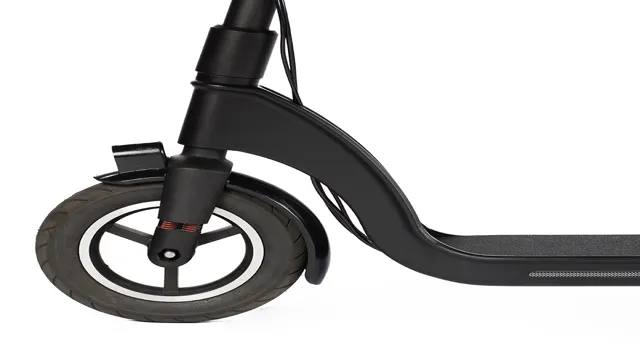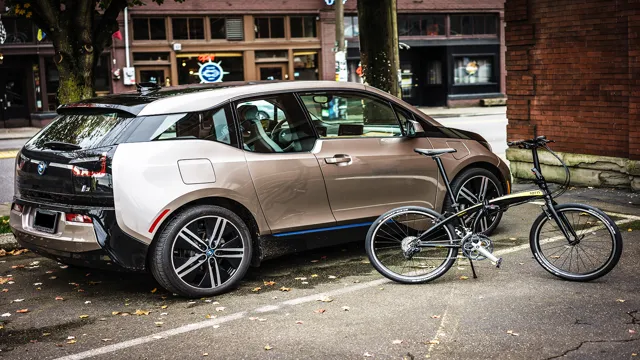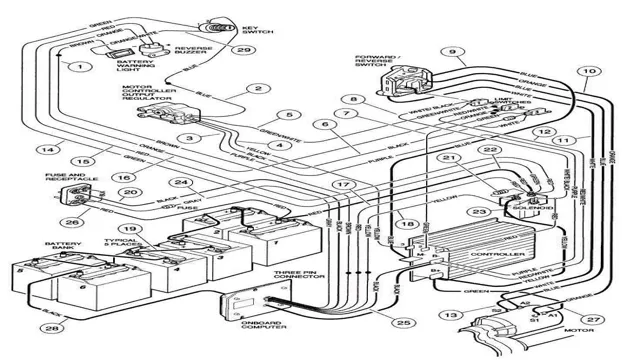Revving up Your Skoolie: The Ultimate Guide to Electric Car Batteries for School Buses
If you’re considering converting a Skoolie into an electric vehicle, you’re probably thinking about the battery. It’s true that electric car batteries have come a long way in recent years, but finding the right battery for your Skoolie can be a daunting task. After all, the battery is the heart of your electric vehicle.
It’s what powers your motor, and it’s what determines how far you can travel on a single charge. So, how do you choose the right electric car battery for your Skoolie?
Introduction
If you’re considering converting a skoolie into an electric vehicle, one of the most important decisions you’ll have to make is choosing the right batteries. Unlike gasoline-powered engines, electric vehicle batteries are the primary source of power, meaning that their performance will have a significant impact on the vehicle’s overall efficiency and range. Fortunately, there are many different options available when it comes to electric car batteries for skoolies.
Lithium-ion batteries, for instance, are a popular choice due to their high energy density and relatively lightweight. Lead-acid batteries are also an option, although they are less efficient and require regular maintenance. Ultimately, the choice of battery will depend on factors such as budget, driving habits, and the specific requirements of your skoolie conversion project.
By doing your research and finding the right battery for your needs, you can ensure that your electric skoolie is both reliable and sustainable on the road.
What are Skoolies?
Skoolies are essentially converted school buses that have been transformed into livable homes or mobile homes. These vehicles have become increasingly popular in recent years, as more people are looking for alternatives to traditional housing options. Skoolies offer a way to live on the road and explore the world, all while having the comforts and conveniences of a home.
These buses are often outfitted with a variety of amenities, such as kitchens, bathrooms, bedrooms, and even living spaces. Some skoolies are designed to be fully off-grid, meaning they can run on solar power, while others have traditional power and water hookups. The beauty of skoolies is that they can be customized to fit any lifestyle, making them a unique and versatile housing option.
Whether you’re an adventurous traveler or a minimalist looking to downsize, skoolies offer a way to live life on your own terms.
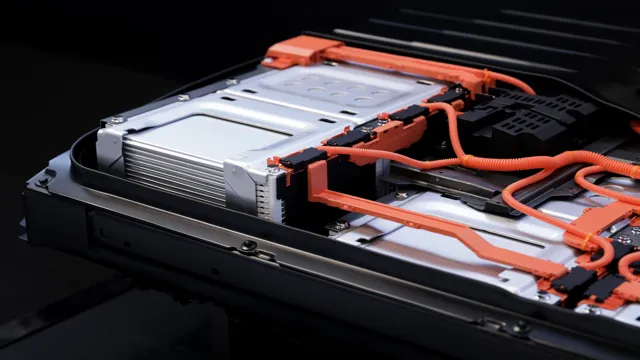
Why Choose Electric for Skoolies?
If you’re considering converting a school bus or “skoolie” into your dream home on wheels, you’ll undoubtedly have to make some important decisions about the type of power source you’ll use. One option that is gaining popularity among skoolie enthusiasts is electric power. So, why choose electric for skoolies? The answer is simple: electric power is clean, efficient, and cost-effective.
Unlike traditional fossil fuels, which contribute to air pollution and climate change, electric power generates zero emissions. This makes it an eco-conscious choice that aligns perfectly with the nomadic, minimalist lifestyle that many skoolie dwellers aspire to. Main Keyword: electric power
Electric Car Batteries for Skoolies
If you’re thinking about converting a skoolie to run on electric power, then you’re probably wondering what kind of batteries you’ll need. Electric car batteries are a popular choice, and for good reason. These batteries are designed to provide long-lasting power and are built to withstand the demands of electric vehicles.
While they may be more expensive than traditional lead-acid batteries, they offer a number of benefits. For starters, they are more energy-efficient, which means you’ll get more mileage out of your skoolie. They also require less maintenance, which can save you time and money in the long run.
Additionally, electric car batteries are safer and more environmentally friendly than lead-acid batteries, which can leak harmful chemicals into the environment. Overall, if you want an efficient and reliable power source for your skoolie, electric car batteries are a great option to consider.
Types of Electric Car Batteries
When it comes to electric car batteries for skoolies, there are several types to choose from. One option is lithium-ion batteries, which are commonly used in electric vehicles due to their high energy density and long lifespan. Another alternative is the lead-acid battery, which is affordable and widely available but not as efficient as lithium-ion batteries.
There are also nickel-metal hydride batteries, which are known for their high power density, but are becoming less common in modern electric vehicles. Ultimately, the type of electric car battery you choose for your skoolie will depend on your budget, energy requirements, and personal preferences. It’s important to do your research and choose a battery that will meet your needs while also providing long-term reliability.
Factors for Choosing Electric Car Batteries for Skoolies
When it comes to converting a school bus into an electric vehicle, choosing the right batteries is an important part of the process. The factors to consider include the type of battery, its capacity, and how many batteries are needed to power the skoolie. Lithium-ion batteries are a popular choice because they are lightweight and have a high energy density, which means they can store a lot of energy in a small space.
However, they are also more expensive than other types of batteries, such as lead-acid batteries. When choosing the capacity of the batteries, it is important to consider the range that is needed for the skoolie. The number of batteries required will depend on the capacity of each battery and the voltage of the overall system.
Overall, selecting the right electric car batteries for a skoolie is a crucial step in creating a sustainable and efficient vehicle.
Advantages of Choosing Electric Car Batteries for Skoolies
Electric Car Batteries for Skoolies When it comes to converting a traditional school bus into a functional living space, the choice of a power source is a key factor to consider. While there are several options available, electric car batteries stand out as a practical and efficient choice for skoolies. Electric car batteries are designed to be high-performing, compact, and long-lasting, which makes them ideal for use in a skoolie.
They are also eco-friendly, noise-free, and require minimal maintenance, which makes them a budget-friendly choice in the long run. One of the significant advantages of choosing electric car batteries for skoolies is that they provide reliable power for all your electrical needs, including heating, cooling, lighting, and entertainment. Using electric car batteries in your skoolie also provides the flexibility to recharge them using solar panels or a generator, ensuring a constant supply of power.
In summary, electric car batteries are an outstanding choice for skoolies, providing an efficient, eco-friendly, and low-maintenance power source that can support your lifestyle on the road.
Maintenance of Electric Car Batteries for Skoolies
Electric car batteries are becoming a popular choice for powering skoolies, but it’s important to know how to properly maintain them to ensure longevity and optimal performance. One key factor is to monitor the battery’s state of charge, which should ideally be kept between 20% and 80%. Allowing the battery to fully discharge or overcharging it can lead to damage and reduce its lifespan.
Regularly inspecting and cleaning the battery terminals can also help prevent corrosion and extend its life. It’s also important to avoid exposing the battery to extreme temperatures, as hot and cold environments can affect its performance. By following these tips, skoolie owners can ensure their electric car batteries are well-cared for and continue to provide reliable power for their adventures on the road.
Charging and Discharging
Electric car batteries are an essential component of any electric vehicle, and proper maintenance is crucial for skoolie owners. It is essential to be familiar with the process of charging and discharging of your battery. Charging efficiently maximizes battery life, while discharging can significantly damage your battery.
To maintain your battery, ensure that you charge the batteries with a reliable charging system while avoiding rapid charging that can lead to overheating. Additionally, avoid over-discharging your battery by ensuring that it doesn’t fully discharge to maintain the battery’s health. Constant monitoring of your battery’s charge levels and maintenance can significantly extend the life of your battery.
A well-maintained battery can provide excellent performance and ensure that you enjoy your electric vehicle experience.
Storage and Temperature Control
One of the most critical aspects of owning an electric skoolie is maintaining the batteries. Proper storage and temperature control are vital in ensuring the longevity of your batteries. It’s best to store your batteries in a cool and dry location, away from direct sunlight and extreme temperatures.
High temperatures can damage the cells and cause them to degrade more rapidly, leading to a shorter lifespan. Additionally, it’s essential to maintain the proper charging levels and regularly balance the cells to ensure equal distribution of power. By implementing these simple maintenance practices, you’ll ensure your electric skoolie’s batteries operate optimally, reducing the risk of unexpected breakdowns and costly repairs.
Remember to keep an eye on your battery’s performance, and if you notice any issues, promptly address them to avoid further damage. Taking care of your batteries will not only save you money but also help the environment by reducing the need for frequent replacements.
Conclusion
In conclusion, the idea of converting a skoolie into an electric vehicle powered by batteries is not only environmentally friendly but also incredibly innovative. With advancements in technology and design, it’s now possible to take a humble school bus and turn it into a futuristic machine that’s powered by the cleanest energy source around. So why not hop aboard the electric skoolie trend and join the movement towards a more sustainable future? Who knows, you might just end up with the coolest ride on the block!”
FAQs
What are the benefits of using electric car batteries in a skoolie conversion project?
There are several benefits of using electric car batteries in a skoolie conversion project. These batteries are environmentally friendly, making them a sustainable option. They also have a longer lifespan than traditional lead-acid batteries and can be recharged faster, reducing downtime.
How much do electric car batteries cost for a skoolie conversion project?
The cost of electric car batteries for a skoolie conversion project can vary based on a number of factors, such as the size of the batteries and the brand. On average, a set of batteries can cost anywhere from $3,000 to $15,000.
Can I install electric car batteries in a skoolie myself, or do I need to hire a professional?
Installing electric car batteries in a skoolie can be a complex process, so it’s generally recommended to hire a professional. However, if you have experience with electrical systems and are comfortable working with high voltage equipment, it may be possible to install them yourself.
Are there any safety concerns I should be aware of when using electric car batteries in a skoolie?
Yes, there are several safety concerns to consider when using electric car batteries in a skoolie conversion project. These batteries contain high levels of energy and can be dangerous if mishandled. It’s important to follow all safety protocols and guidelines when installing and using these batteries, including wearing appropriate protective gear and ensuring proper ventilation.
